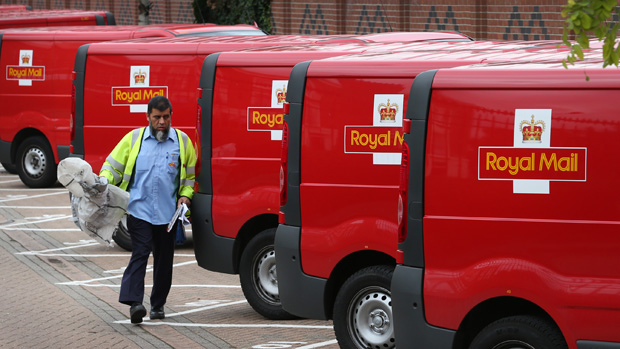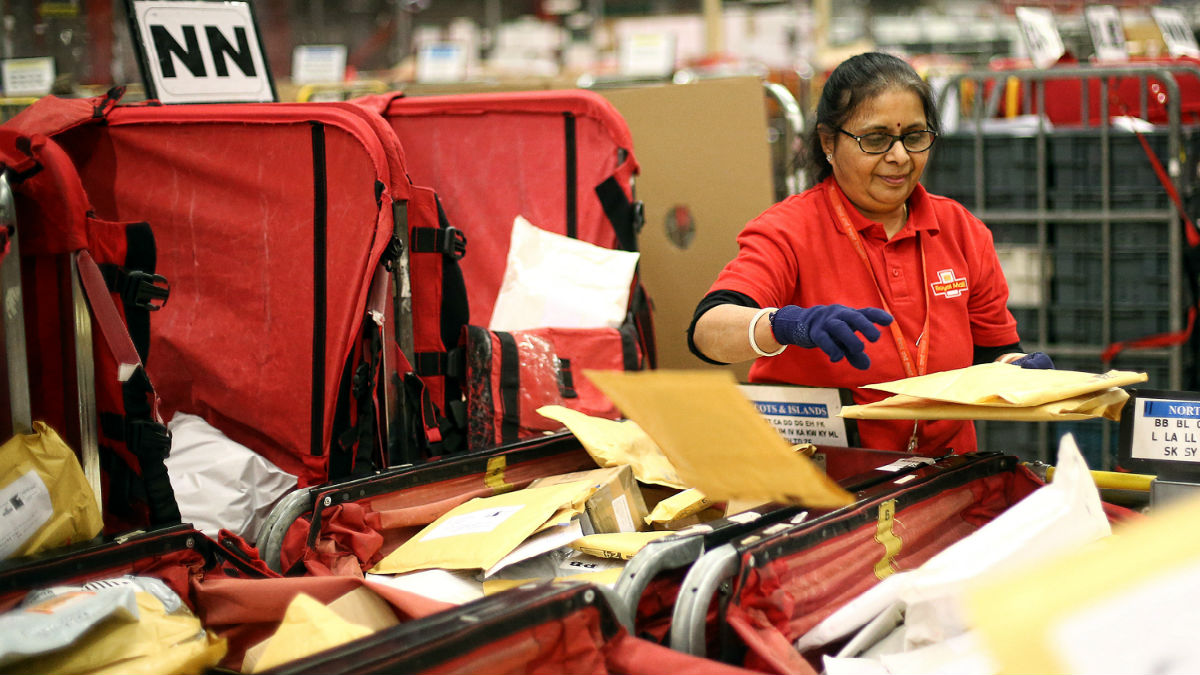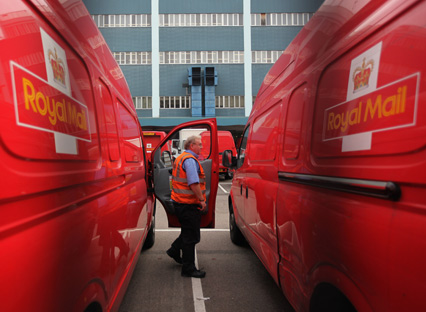Royal Mail wins high court battle to stop postal strike
The vote to strike won by 97%, with a 76% turnout, but the judge ruled there were ‘irregularities’ in the process


A free daily email with the biggest news stories of the day – and the best features from TheWeek.com
You are now subscribed
Your newsletter sign-up was successful
The Royal Mail has won a High Court battle to block what would have been the first national postal strike in a decade.
The Communication Workers Union (CWU), who called the Christmas strike, condemned the injunction as an “utter outrage”.
The union said it would appeal against the decision after it was granted in London on Wednesday by the judge, Mr Justice Swift, who accepted the postal company’s argument that the ballot to call the strike - which was won with 97% of the vote - was compromised by “improper interference”.
The Week
Escape your echo chamber. Get the facts behind the news, plus analysis from multiple perspectives.

Sign up for The Week's Free Newsletters
From our morning news briefing to a weekly Good News Newsletter, get the best of The Week delivered directly to your inbox.
From our morning news briefing to a weekly Good News Newsletter, get the best of The Week delivered directly to your inbox.
What happened in court?
The Royal Mail had sought a temporary injunction to prevent CWU workers striking in the lead-up to Christmas on the grounds that there were “irregularities” in last month’s vote.
The judge agreed. “What the CWU did in this case was... a form of subversion of the ballot process,” he said. “There was interference which would be accurately described as improper.”
The main problem with the voting process, the judge specified, was that the CWU had actively encouraged postal workers to vote at work, whereas the rules on industrial action stipulate that ballot papers have to be sent to the privacy of union members’ homes, to minimise any coercion.
A free daily email with the biggest news stories of the day – and the best features from TheWeek.com
The CWU argued that there was no interference or coercion at play, only “legitimate partisan campaigning”, and its leaders reacted furiously to the injunction.
“Not one single person out of 110,000 who were balloted complained to Royal Mail that their right to vote was interfered with,” said the union’s general secretary, Dave Ward.
“The Electoral Reform Services who conducted the ballot confirmed it was run in full accordance of the law, and after over seven weeks since the ballot commenced, not one single person has complained... Yet despite all of this - with no evidence supporting their claim from any employee - Royal Mail can come to this court in what is a cowardly and vicious attack on its own workforce.”
“Royal Mail has alleged that workers were being pressed to open their ballot papers on site with their colleagues, rather than at home, and were filming or taking pictures before posting their ballots together at workplace postboxes,” The Financial Times reports.
–––––––––––––––––––––––––––––––For a round-up of the most important business stories and tips for the week’s best shares - try The Week magazine. Get your first six issues free–––––––––––––––––––––––––––––––
However, Lord John Hendy QC, representing the CWU, disagreed. “Encouraging people to vote or to vote in a particular way is not an interference or constraint imposed on them by the union in the exercise of their right to vote,” he told the court.
The judge’s ruling precludes the opportunity for appeal before Christmas - a crucial commercial time for the Royal Mail - on the grounds that it could disrupt postal voting before the 12 December’s general election - but the CWU is adamant that will not prevent it trying.
“Of course we’ll have to appeal, of course we’ll have to reballot,” said Terry Pullinger, the union’s deputy general secretary, outside the court. “This union will not back off, we’ll do everything in our power.”
William Gritten is a London-born, New York-based strategist and writer focusing on politics and international affairs.
-
 6 of the world’s most accessible destinations
6 of the world’s most accessible destinationsThe Week Recommends Experience all of Berlin, Singapore and Sydney
-
 How the FCC’s ‘equal time’ rule works
How the FCC’s ‘equal time’ rule worksIn the Spotlight The law is at the heart of the Colbert-CBS conflict
-
 What is the endgame in the DHS shutdown?
What is the endgame in the DHS shutdown?Today’s Big Question Democrats want to rein in ICE’s immigration crackdown
-
 Mystery boxes: the companies selling lost parcels and suitcases
Mystery boxes: the companies selling lost parcels and suitcasesUnder The Radar The 'gamble' on what is inside is 'part of the attraction' for some customers
-
 Why is Royal Mail failing to deliver?
Why is Royal Mail failing to deliver?Today's Big Question The 507-year-old British institution is facing carve-up and even insolvency with decline of letter writing
-
 Coronavirus: how Royal Mail is changing its service
Coronavirus: how Royal Mail is changing its serviceIn Depth Postal service announces new opening hours and parcel collection system
-
 Royal Mail faces strike action over pension scheme closure
Royal Mail faces strike action over pension scheme closureSpeed Read Scheme was closed to new members in 2008 but still costs £400m a year
-
 RBS sale: does privatisation serve the public interest?
RBS sale: does privatisation serve the public interest?In Depth Some experts believe taxpayers may be short-changed – bringing back memories of Royal Mail sell-off
-
 Royal Mail shares rebound after strong Christmas
Royal Mail shares rebound after strong ChristmasIn Depth Direct deals with retailers helped boost parcel volumes six per cent over the festive period
-
 Royal Mail: shares surge as trading begins
Royal Mail: shares surge as trading beginsSpeed Read Conditional trading starts today but anyone who applied for more than £10,000 won't get a thing
